Like a lot of people, I think, my feelings about the final episode in Sherlock's third season, are mixed, intense, and at times contradictory. Also, they can sometimes be best explained with swears. But since this is a marginally family-friendly site and my mother reads it, we're going to skip right past the profanity and go into the part where I tear it to shreds with my teeth.
I mean, uh, analyze it. Yeah. Man, that got violent at the end.
SPOILERS. We're getting it out of the way early today, because really, if you haven't seen the episode yet, then what are you doing here? I mean that in the nice way, of course, even if it does sound exceptionally bitchy.
Anyway, like I said above, I have mixed feelings. But that doesn't mean it's universally bad. There were actually a lot of parts of this episode that I quite enjoyed, and the overall viewing experience was dramatic and fun and a little bit breathless. I think, in a way, that's the problem with Moffat. Or one of the problems. The first time you watch any of his works, you usually like them. They're fun! But the second viewing, or even when you try to remember the details of the first, you start to realize where all the holes are, and then it just gets bad.
But there are some genuine highlights in this episode, "His Last Vow", and most of them centered around the female cast. So let's talk about those first.
Molly Hooper (Louise Brealey) is absolutely fantastic in this episode. In all of her scenes, she kills it. When she slapped Sherlock (repeatedly) for throwing away the "beautiful gift" of his sobriety, there were literal cheers. And then later, when she appeared as an apparition in his mind palace to talk him through a diagnosis of his bullet wound, she managed to be entirely herself, but also better. We got to finally see her as Sherlock does: a brilliant, incredibly skilled doctor and the one person he can count on to get him through a crisis. It's even more notable to think that Sherlock instinctively turned to his mental Molly rather than a mental John to talk him through it. John's a doctor too, after all. I'd guess that this is because he doesn't mentally categorize John as a doctor, and he does think of Molly that way, but whatever the reason, the scenes were brilliant and I loved them. Team Molly for the win!
Another bit I quite liked was seeing the Holmes family all together. It's always a riot when we get glimpses into the childhood and family life of Sherlock (Benedict Cumberbatch) and Mycroft (Mark Gatiss), and this was no exception. Made all the more entertaining by the fact that their parents are played by Benedict's actual parents, the scenes of domestic normalcy - with a nice house in the suburbs, ugly sweaters, and a mum who chastises everyone for not calling - were hilarious. Plus, just the idea that Sherlock and Mycroft came from reasonably normal people is freaking hysterical.
And then there's Janine (Yasmine Akram). Janine was arguably my absolute favorite thing about this episode. No, not because Sherlock finally got a girlfriend. That part felt confusing and out of character (until we figured out why he was doing it), but Janine was still lovable. Oh, I rather pitied her at the start, but as the episode wore on, she became increasingly interesting, which is a true rarity for a female love interest, especially on this show. In fact, it was the very end of her storyline that made me adore her.
Look, I'm not usually a fan of revenge at all, but I loved Janine's. It's brilliant. Not insofar as it really worked to punish Sherlock, because as we'll discuss at the end, her telling the tabloids all about their fictitious sex life really did nothing to change Sherlock's career, life, or even personal relationships, since no one who knows him would believe it. But I like it for its poetry. Sherlock uses her to get what he wants (access to her boss), and Janine uses him right back to get what she wants: which is apparently a lovely cottage in the country. Fair's fair, after all.
More than that, though, I loved that she was shown to be absolutely right in her anger. That she was shown not to be overreacting or freaking out, but that she was perfectly justified in wanting to wipe that smug smirk off his face. She did, after all, date him for months, thinking it was a real relationship. He proposed to her. Damn straight she's pissed and wants revenge. I think that was my favorite line of the whole episode, actually. When asked if she's ever going to be done getting her revenge, she responds that she'll just pop up every now and again for "a top up". I like her. And I like the story for letting me like her.
And then there's John (Martin Freeman). Specifically, the scene where John asks what he did to deserve this (this, of course, referring to the whole "my wife is actually an assassin in hiding" thing), and Sherlock responds, "Everything."
Why is that good? Because it's totally true. John Watson is addicted to fear and scary people. He's genuinely quite crazy, for all that he's the normal one of the bunch. When you look at his closest friends and loved ones, it's all his sociopathic best friend and his drug cartel running landlady, his medical examiner friend and his assassin wife (Amanda Abbington). John Watson is arguably crazier than anyone else on the show because he's the only one unaware of precisely how crazy he is.
Also, I think it was a brilliant way to answer the question of why John's wife turned out to be an assassin. Because of course she is. John Watson wouldn't just marry anyone normal. Normal doesn't do it for him. Case in point? His previous girlfriends in the first two seasons. Both normal and both reasonably forgettable.
But now we come to the parts I didn't like, which are, of course, rather more numerous I am afraid.
It's not that I didn't like the episode as a whole. I enjoyed it immensely. Lots of giggles and groans and the occasional high pitched squealing noise that apparently sounds a bit like a vacuum cleaner in a neighboring room (thanks, Duc, for that apt analogy). I love that Mary turned out to be a bit of a scary person and that she wasn't the ultimate bad guy. I love that she tried to assassinate a guy while pregnant. And I love that she is clearly the most competent person in that group.
But I don't love the fact that they stole her resolution. In fact, I loathe how the story was executed from pretty much that point on. From the condescending, "That's where they sit!" to John's decision to wait literal months to forgive her or even speak to her at all - while I recognize the emotional realism of that, it still felt pretty horrible to realize that John had been giving his pregnant wife the silent treatment for months, making her wait to see if he would forgive her, condemn her, turn her over to the police, what?
When he does finally deign to speak to her, it's to say that all of her fears were for nothing and he doesn't care who she is or where she's been, only what her future is. A sentiment that is lovely and romantic, but ultimately a bit offensive. He should care where she's been and who she is, for no other reason than that they will inform her future.
Not in a judgey way should he care, but in a simple, practical way. I expected more of you, John Watson. Certainly more than deciding that defining your wife as being just your wife was good enough for you.
It's not. She's more than just that, and it might be helpful to know exactly what. And furthermore, how insulting is it for him to demand the truth, then literally burn it and assert his own truth about her life on top of it. John's actions in this story, understandable or not, are extremely troubling. He throws things, has violent outbursts, gives his pregnant wife the silent treatment for months, and then rewrites Mary's whole story to better suit his desire for a normal wife. Instead of getting a story about Mary this episode, we got one about John. And it wasn't pretty.
All of that aside, we're still not even to the really annoying bit. That part comes when Sherlock drugs Mary (and his entire family) only to drag John out so they can make a deal with Magnusson that will free Mary, presumably. The problem here is that Sherlock has decided all of this without consulting Mary. He's not even deigned to mention it to her. He just decides that this is the best way to deal with the threat, even though Mary is a highly trained assassin who presumably knows how to infiltrate a house a hell of a lot better than either Sherlock or John.
Think about it. They had to go through a ridiculous charade to get into Magnusson's office, while Mary just appeared and disappeared with no trouble. Don't you think it would have been helpful to figure out how she could help?
And more than that, don't you think Mary deserves to be the one to take the shot? In the beginning she's demonized for wanting to kill Magnusson - it's a sign of how terrifying she is, how little John knows her. But as soon as she's been reaffirmed as John's lovely wife, she's too delicate to kill anyone. Sherlock shoots Magnusson, yes, but Sherlock is the hero, and therefore his action, which is exactly what Mary wanted to do, is justified and correct. If Mary shoots him she's a murderer. Sherlock shoots him and he's the hero.
Should I even point out that John murdered someone in cold blood in the first freaking episode? Why can't Mary kill someone? She's clearly good at it, and probably much better at compartmentalization than either of the boys. She also wouldn't get caught doing it in front of twenty police officers.
But the real frustration in this episode is the utter lack of consequences, for Sherlock in particular. We see in the beginning that Sherlock has gone back on drugs. Yet there are no repercussions to this. He does not act high, go through withdrawal, experience a side-effect when hooked up to morphine after being shot, there are no drug interactions, not even a note on his chart. Sherlock Holmes can spend the night in a crack den, high as a kite, and no one can tell him not to because he's right. It's all fine.
This stands in blatant contrast to Elementary, of course, as much of Sherlock does, where the entire show is actually formed on the understanding of Sherlock (Johnny Miller here) as a recovering drug addict. In Elementary, Sherlock's drug problems are no laughing matter, nor are his disturbing social tendencies and occasional felonious habits. In Sherlock, it's all fine, because Sherlock's the one doing it and Sherlock never does anything wrong.
There are no consequences to Janine's shaming of Sherlock in the press, which ultimately means that he was able to date a woman for a month, make her believe he loves her in a gambit to get access to her boss, and he gets out scott free. He gets shot in the stomach but somehow manages to escape the hospital, traipse around London, confront someone, and then casually call the ambulance to pick him up at exactly the right time, and then recovers out of sight.
Oh, and he shoots a prominent businessman in the face at point blank range with an unregistered gun in front of about twenty police officers, and his punishment is what, exactly? Four minutes on a plane before the plot decides it needs him again? Exactly what can't Sherlock get away with? Because he has now literally gotten away with murder.
And, of course, Moriarty may or may not be back (I'm betting on not, because that would be ridiculous, but what do I know?), and Sherlock doesn't have to leave, and it's all very exciting, right?
Eh.
Look, I really did enjoy this episode and this season in general. But I'm pretty freaking tired of all the bullshit that goes along with it (sorry, Mom). I'm tired of weird sexism and racism and plotlines that don't make sense and everyone bowing down to our lord Holmes. I'm tired of all the Moffat crap, basically. And it doesn't escape my notice that this episode, which bothered me the most out of all three, is the only one written exclusively by him.
A tip of the hat, good sir. Thanks for reminding me why I dislike you. As if I'd had time to forget.
I mean, uh, analyze it. Yeah. Man, that got violent at the end.
SPOILERS. We're getting it out of the way early today, because really, if you haven't seen the episode yet, then what are you doing here? I mean that in the nice way, of course, even if it does sound exceptionally bitchy.
Anyway, like I said above, I have mixed feelings. But that doesn't mean it's universally bad. There were actually a lot of parts of this episode that I quite enjoyed, and the overall viewing experience was dramatic and fun and a little bit breathless. I think, in a way, that's the problem with Moffat. Or one of the problems. The first time you watch any of his works, you usually like them. They're fun! But the second viewing, or even when you try to remember the details of the first, you start to realize where all the holes are, and then it just gets bad.
But there are some genuine highlights in this episode, "His Last Vow", and most of them centered around the female cast. So let's talk about those first.
Molly Hooper (Louise Brealey) is absolutely fantastic in this episode. In all of her scenes, she kills it. When she slapped Sherlock (repeatedly) for throwing away the "beautiful gift" of his sobriety, there were literal cheers. And then later, when she appeared as an apparition in his mind palace to talk him through a diagnosis of his bullet wound, she managed to be entirely herself, but also better. We got to finally see her as Sherlock does: a brilliant, incredibly skilled doctor and the one person he can count on to get him through a crisis. It's even more notable to think that Sherlock instinctively turned to his mental Molly rather than a mental John to talk him through it. John's a doctor too, after all. I'd guess that this is because he doesn't mentally categorize John as a doctor, and he does think of Molly that way, but whatever the reason, the scenes were brilliant and I loved them. Team Molly for the win!
And then there's Janine (Yasmine Akram). Janine was arguably my absolute favorite thing about this episode. No, not because Sherlock finally got a girlfriend. That part felt confusing and out of character (until we figured out why he was doing it), but Janine was still lovable. Oh, I rather pitied her at the start, but as the episode wore on, she became increasingly interesting, which is a true rarity for a female love interest, especially on this show. In fact, it was the very end of her storyline that made me adore her.
Look, I'm not usually a fan of revenge at all, but I loved Janine's. It's brilliant. Not insofar as it really worked to punish Sherlock, because as we'll discuss at the end, her telling the tabloids all about their fictitious sex life really did nothing to change Sherlock's career, life, or even personal relationships, since no one who knows him would believe it. But I like it for its poetry. Sherlock uses her to get what he wants (access to her boss), and Janine uses him right back to get what she wants: which is apparently a lovely cottage in the country. Fair's fair, after all.
More than that, though, I loved that she was shown to be absolutely right in her anger. That she was shown not to be overreacting or freaking out, but that she was perfectly justified in wanting to wipe that smug smirk off his face. She did, after all, date him for months, thinking it was a real relationship. He proposed to her. Damn straight she's pissed and wants revenge. I think that was my favorite line of the whole episode, actually. When asked if she's ever going to be done getting her revenge, she responds that she'll just pop up every now and again for "a top up". I like her. And I like the story for letting me like her.
And then there's John (Martin Freeman). Specifically, the scene where John asks what he did to deserve this (this, of course, referring to the whole "my wife is actually an assassin in hiding" thing), and Sherlock responds, "Everything."
Why is that good? Because it's totally true. John Watson is addicted to fear and scary people. He's genuinely quite crazy, for all that he's the normal one of the bunch. When you look at his closest friends and loved ones, it's all his sociopathic best friend and his drug cartel running landlady, his medical examiner friend and his assassin wife (Amanda Abbington). John Watson is arguably crazier than anyone else on the show because he's the only one unaware of precisely how crazy he is.
Also, I think it was a brilliant way to answer the question of why John's wife turned out to be an assassin. Because of course she is. John Watson wouldn't just marry anyone normal. Normal doesn't do it for him. Case in point? His previous girlfriends in the first two seasons. Both normal and both reasonably forgettable.
But now we come to the parts I didn't like, which are, of course, rather more numerous I am afraid.
It's not that I didn't like the episode as a whole. I enjoyed it immensely. Lots of giggles and groans and the occasional high pitched squealing noise that apparently sounds a bit like a vacuum cleaner in a neighboring room (thanks, Duc, for that apt analogy). I love that Mary turned out to be a bit of a scary person and that she wasn't the ultimate bad guy. I love that she tried to assassinate a guy while pregnant. And I love that she is clearly the most competent person in that group.
But I don't love the fact that they stole her resolution. In fact, I loathe how the story was executed from pretty much that point on. From the condescending, "That's where they sit!" to John's decision to wait literal months to forgive her or even speak to her at all - while I recognize the emotional realism of that, it still felt pretty horrible to realize that John had been giving his pregnant wife the silent treatment for months, making her wait to see if he would forgive her, condemn her, turn her over to the police, what?
Not in a judgey way should he care, but in a simple, practical way. I expected more of you, John Watson. Certainly more than deciding that defining your wife as being just your wife was good enough for you.
It's not. She's more than just that, and it might be helpful to know exactly what. And furthermore, how insulting is it for him to demand the truth, then literally burn it and assert his own truth about her life on top of it. John's actions in this story, understandable or not, are extremely troubling. He throws things, has violent outbursts, gives his pregnant wife the silent treatment for months, and then rewrites Mary's whole story to better suit his desire for a normal wife. Instead of getting a story about Mary this episode, we got one about John. And it wasn't pretty.
All of that aside, we're still not even to the really annoying bit. That part comes when Sherlock drugs Mary (and his entire family) only to drag John out so they can make a deal with Magnusson that will free Mary, presumably. The problem here is that Sherlock has decided all of this without consulting Mary. He's not even deigned to mention it to her. He just decides that this is the best way to deal with the threat, even though Mary is a highly trained assassin who presumably knows how to infiltrate a house a hell of a lot better than either Sherlock or John.
Think about it. They had to go through a ridiculous charade to get into Magnusson's office, while Mary just appeared and disappeared with no trouble. Don't you think it would have been helpful to figure out how she could help?
Should I even point out that John murdered someone in cold blood in the first freaking episode? Why can't Mary kill someone? She's clearly good at it, and probably much better at compartmentalization than either of the boys. She also wouldn't get caught doing it in front of twenty police officers.
But the real frustration in this episode is the utter lack of consequences, for Sherlock in particular. We see in the beginning that Sherlock has gone back on drugs. Yet there are no repercussions to this. He does not act high, go through withdrawal, experience a side-effect when hooked up to morphine after being shot, there are no drug interactions, not even a note on his chart. Sherlock Holmes can spend the night in a crack den, high as a kite, and no one can tell him not to because he's right. It's all fine.
This stands in blatant contrast to Elementary, of course, as much of Sherlock does, where the entire show is actually formed on the understanding of Sherlock (Johnny Miller here) as a recovering drug addict. In Elementary, Sherlock's drug problems are no laughing matter, nor are his disturbing social tendencies and occasional felonious habits. In Sherlock, it's all fine, because Sherlock's the one doing it and Sherlock never does anything wrong.
There are no consequences to Janine's shaming of Sherlock in the press, which ultimately means that he was able to date a woman for a month, make her believe he loves her in a gambit to get access to her boss, and he gets out scott free. He gets shot in the stomach but somehow manages to escape the hospital, traipse around London, confront someone, and then casually call the ambulance to pick him up at exactly the right time, and then recovers out of sight.
Oh, and he shoots a prominent businessman in the face at point blank range with an unregistered gun in front of about twenty police officers, and his punishment is what, exactly? Four minutes on a plane before the plot decides it needs him again? Exactly what can't Sherlock get away with? Because he has now literally gotten away with murder.
And, of course, Moriarty may or may not be back (I'm betting on not, because that would be ridiculous, but what do I know?), and Sherlock doesn't have to leave, and it's all very exciting, right?
Eh.
Look, I really did enjoy this episode and this season in general. But I'm pretty freaking tired of all the bullshit that goes along with it (sorry, Mom). I'm tired of weird sexism and racism and plotlines that don't make sense and everyone bowing down to our lord Holmes. I'm tired of all the Moffat crap, basically. And it doesn't escape my notice that this episode, which bothered me the most out of all three, is the only one written exclusively by him.
A tip of the hat, good sir. Thanks for reminding me why I dislike you. As if I'd had time to forget.
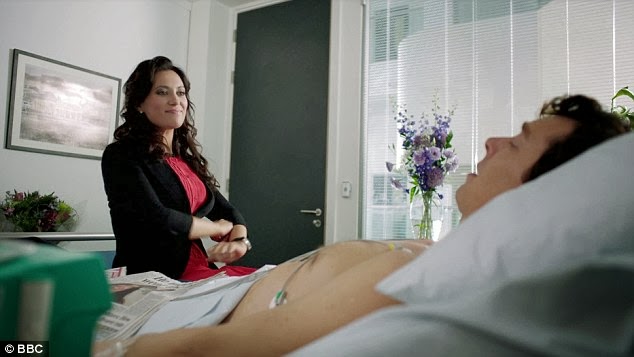 |
| I love you, Janine. |

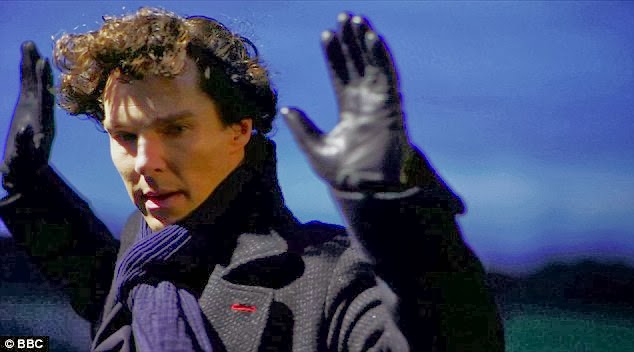
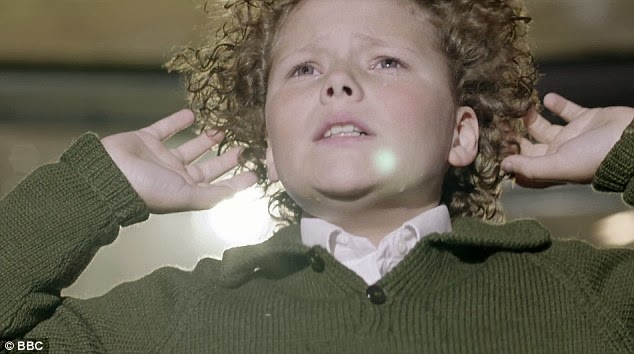
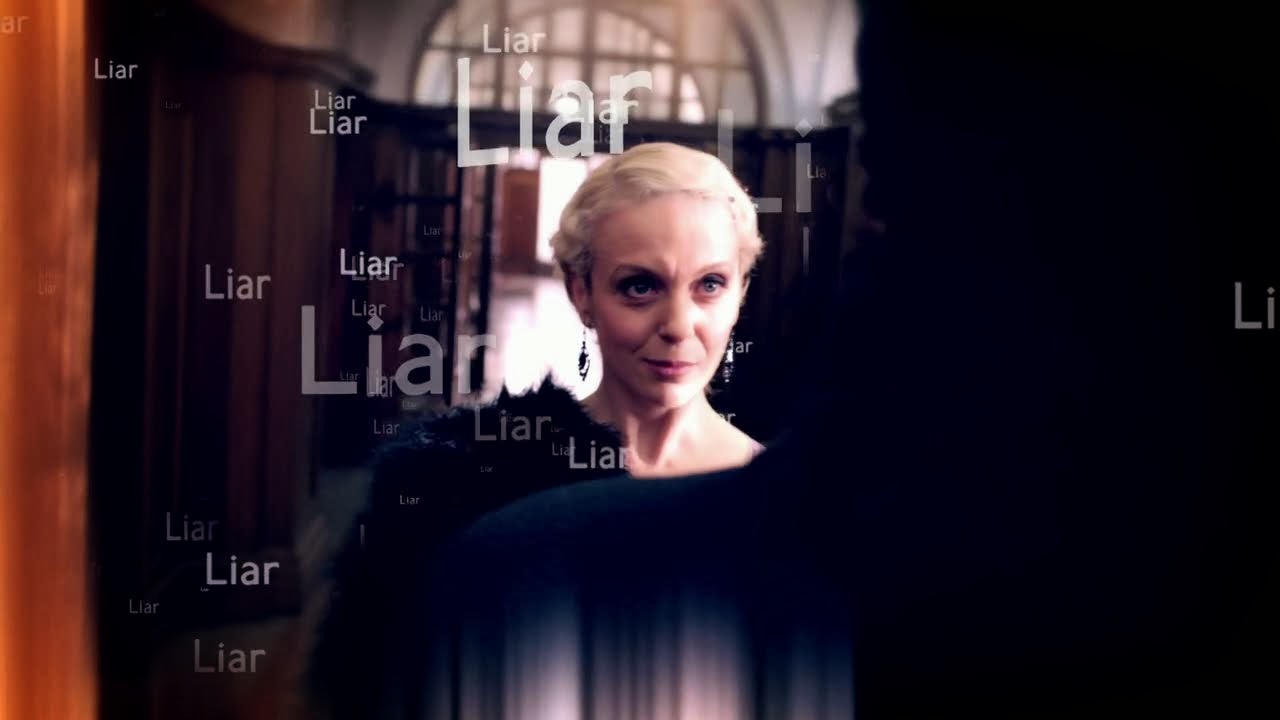

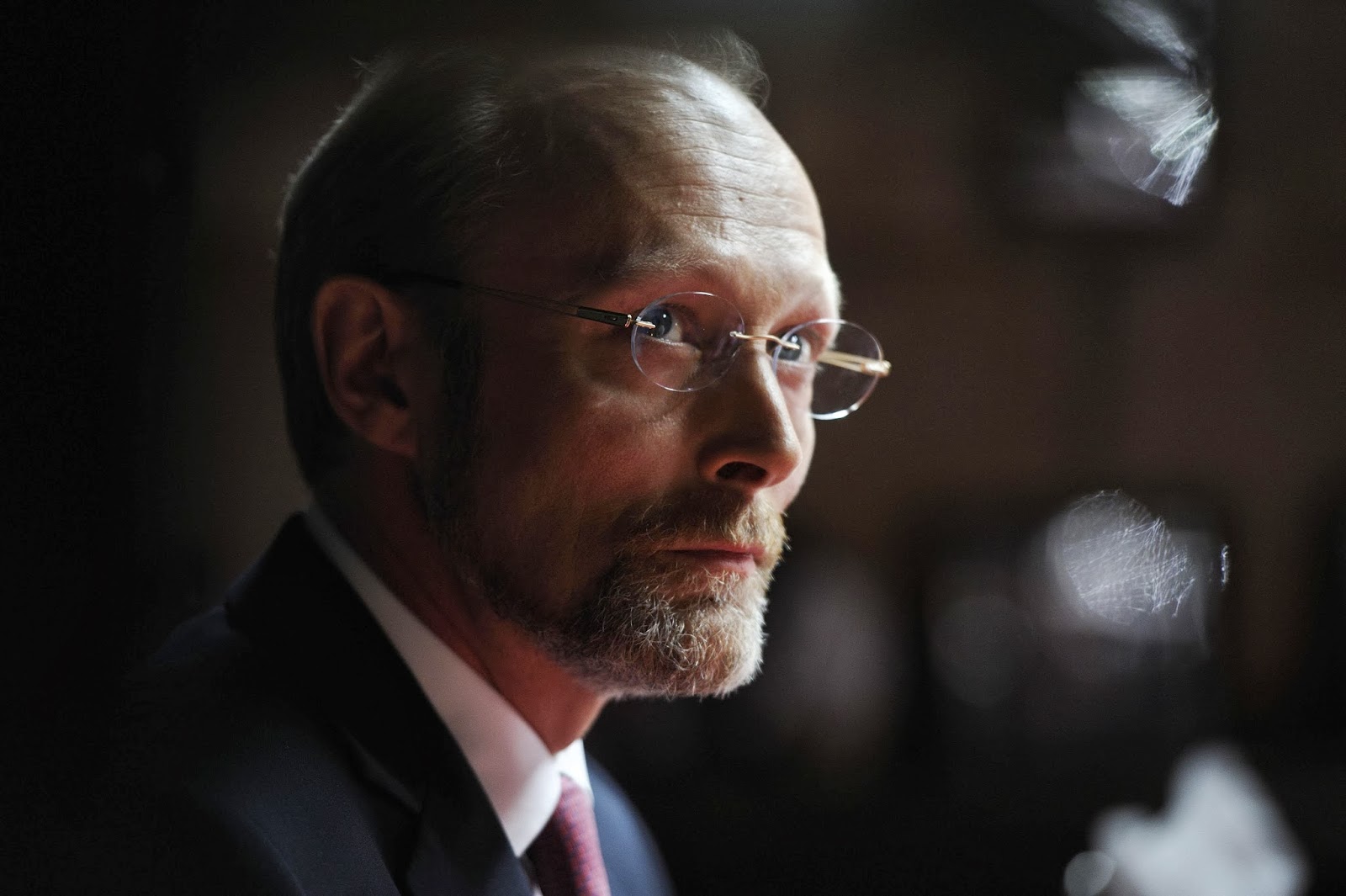
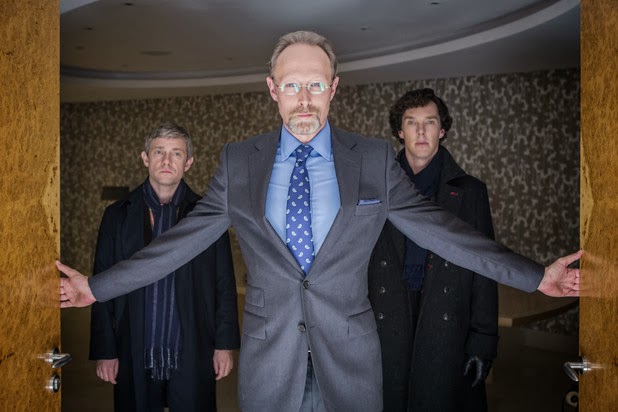
Debbie/Moffat, it's a love/hate relationship.
ReplyDeleteI think you might be overstating the love a bit.
DeleteOh? I thought the whole "watching everything he makes and writing articles about them" indicated something, I suppose I was wrong...
DeleteShush you.
DeleteYou've put into words so accurately my feelings about this episode, it's kind of alarming really! I loved Janine too. I was also super upset that Sherlock physically stole (by both drugging Mary and killing Magnusson) Mary's story, especially when she, as you pointed out, could have likely dealt with it in a much better way. Badass Mary was amazing!
ReplyDeleteIt's because I'm in your brain. Stealing your thoughts.
Delete:DDD
Let's not even forget that Sherlock DRUGGED MARY-- Preggo Mary!
ReplyDeleteAnd yes, Janine - You. Are. Adorable. I've got a girlcrush on that her!
Not giving Mary a say or even a chance to help out (after last episode I thought, ok, so she's not gonna jump the shark, she's gonna be the plucky grrl sidekick who can put Sherl in his place!) NOT! GAH!
As for Moriarty, what if the guy who Sherlock thought was Moriarty really *was* an actor, a puppet for another character (who, in the books was just as brilliant as Sherlock but morally opposite), and here's Sherlock sitting watching Foyle's War on the telly (it could happen) Episode "The Hide" and he's like "Look John, there's Moriarty!" Wouldn't that be a hoot!?
@GwynethJones
The Daring Librarian (.com)
That would be a pretty rad twist, I'll give you that.
DeleteI think they're starting to experience a bit of villain decay. They used up all their big villains too quickly!
Awesome issues here. I am very satisfied to look your article.
ReplyDeleteThanks a lot and I’m taking a look forward to contact you.
Will you please drop me a e-mail?부산달리기